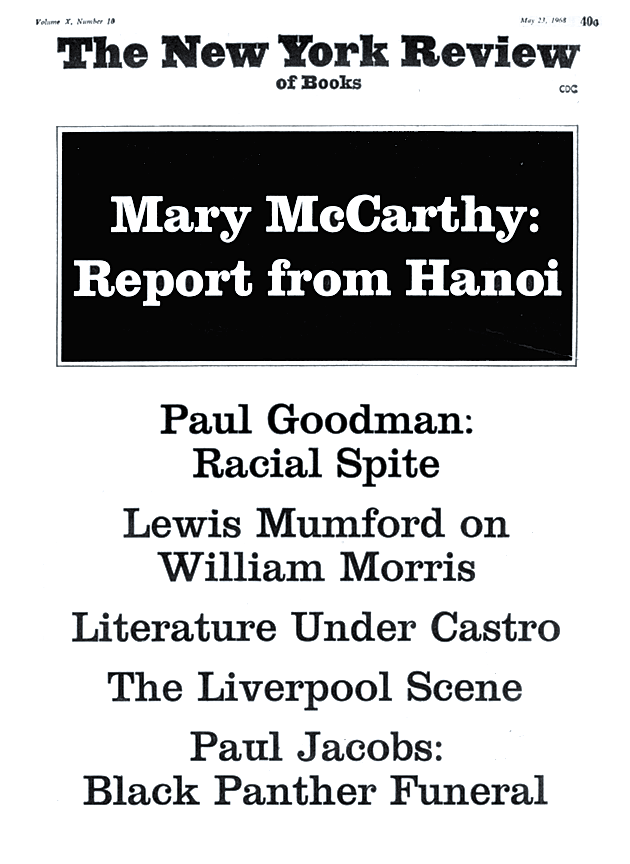In response to:
Writers Behind Barbed Wire from the March 14, 1968 issue
To the Editors:
We read with interest and some surprise the letters of Edmund Wilson and Lewis Mumford in the issue of March 14 of NYR attacking scholarly attempts to produce as accurate a text of important American authors as possible. Are we to understand that these distinguished men believe that it is better to make available to the public texts which these authors did not write, or which they wrote only in part?
M.H. Abrams
Cornell University
Morton W. Bloomfield
Harvard University
Lewis Mumford replies:
My gratitude to all the academic critics who have dissented from my review of the Harvard edition of Emerson’s Journals has been refreshed by the comments of Messrs. Abrams and Bloomfield. But I admit there is a touch of malice in my response; for these critics have exposed with disarming simplicity the very scholarly vices I challenged. By now, if one may judge by their defense, the authentic mark of the truly contemporary American scholar in literature is that he is more interested in the exact replication of an original manuscript than in presenting a meaningful and readable text. To confuse such a photographic presentation with editing, and to call the resulting garble an “accurate” text, as Messrs. Abrams and Bloomfield do, is to play fast and loose with the English language: what is worse, it is to assume that Emerson’s own intentions need not be respected, and that he has no right to have the final word. On the same terms, a well-cooked dinner should not be served without also gracing the meal with the incidental garbage and offal accumulated in its preparation: indeed, from the standpoint of “accurate” scholarship, I take it, the garbage is important enough in its own right to justify spoiling the dinner. This metaphor is unhappily so exact that I fear I must leave the dinner table hastily—if someone will show me where the vomitorium is.
This Issue
May 23, 1968


